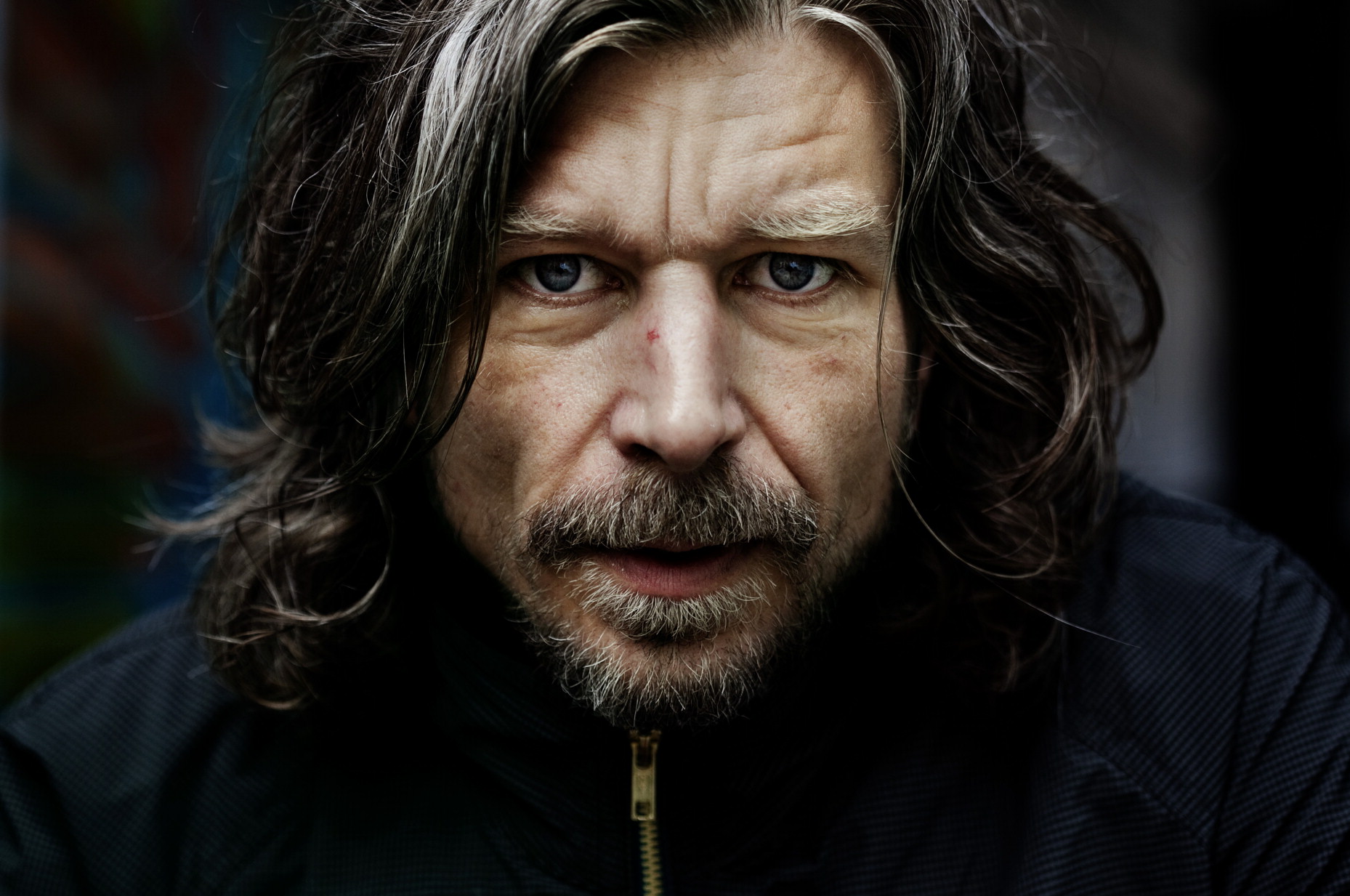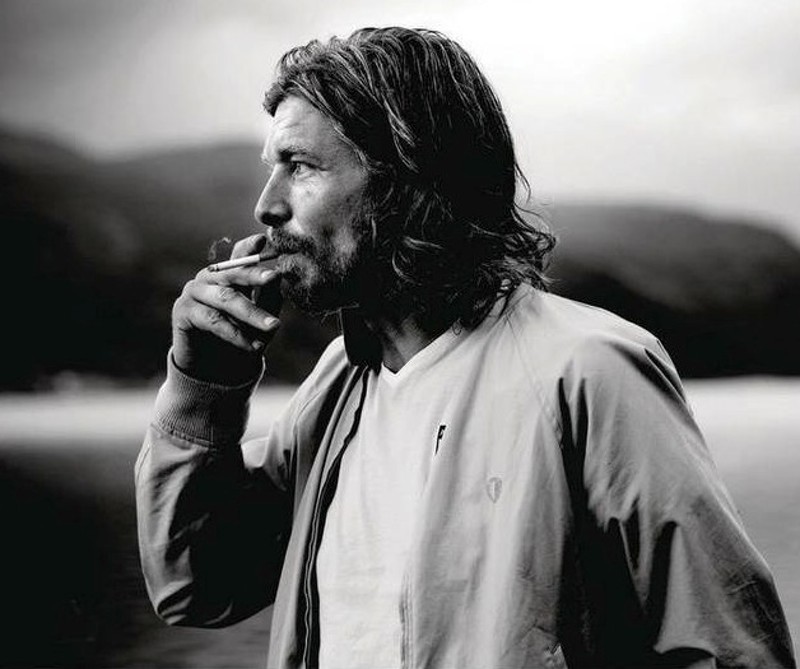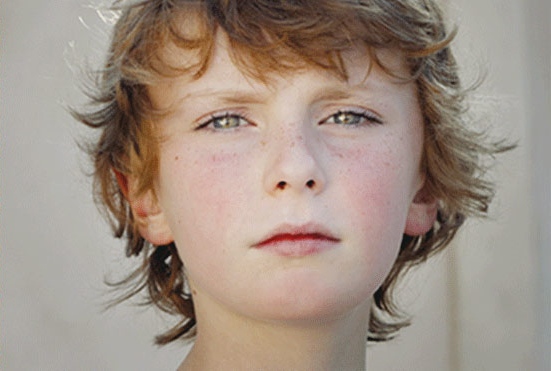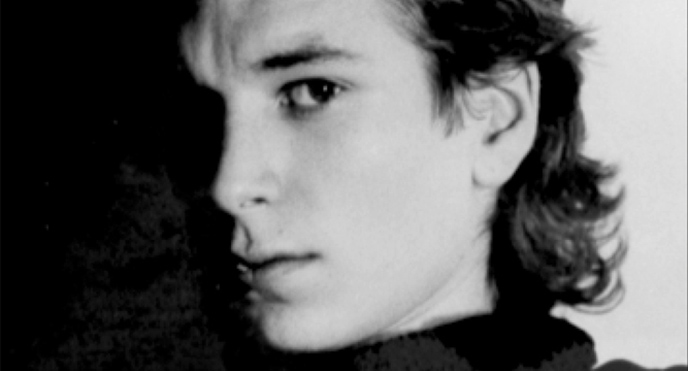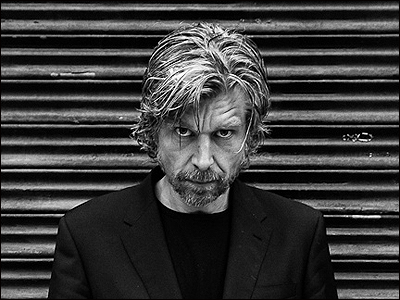My Struggle, vol. 2: Diana, July 16
Brooklyn, NY
Dear Omari, Cecily, Sarah, and Dan,
When I recently interviewed the poet Corina Copp, she suggested, over oysters I won't describe with Karl Ove's enthusiasm, that we pretend I hadn't read her work.
Fearing this was Corina's way of implying that my questions made her think I hadn't read her carefully, I suggested we pretend instead that I had.
In sitting down to write this letter, I've struggled to decide whether to pretend I have or have not read the second volume of Knausgaard.
If I have "read" this volume, I can admit that it hasn't opened itself up to me. In Omari's most recent letter, he focused on Karl Ove's seeming refusal to open himself up to Swedish, a refusal marked not by his annoyance with his own failure to learn, but with the shopkeepers and acquaintances who can't understand his Norwegian. This linguistic divide contributes to his anxiety around failing to be a good enough man, too, as he can't even get the words together initially to tell the taxi driver that his wife might be going into labor.
Like K with Swedish, I'm liable to blame my own remaining-closed-off on him, rather than on myself. Omari ties K's struggle with Swedish to his struggle with poems, which also "never opened themselves up to" him (142). I guess it might be the bitchy poet in me that remains closed off, as in the passage Sarah quotes, where K tries to tell a poet that she should read his novel because "perhaps it was the kind of book you were simply drawn into" (171), only to realize that, to the poet, this was unpersuasive. But I'd rather blame him.
When Dan introduced this series, he described Omari, Cecily, and himself as academics, and me as a "poet-scholar." I read this as giving me permission (for which I'm grateful) to be less scholarly, to some extent, insofar as it's an acknowledgement that I spend my time mainly writing poetry. But it's also a term, "poet-scholar," that rejects the two options K offers for dealing with closedness-to-poetry: rejecting poetry altogether, or gaining mastery either over or through it.
Not having chosen between the two, I'm like: "Poems, I've got you covered." I'm not worried about poems. I am annoyed by reading Knausgaard.
Luckily, I don't have to read Knausgaard to have read Knausgaard.
I have already read Knausgaard by not-having-read Ben Lerner's Hatred of Poetry, which I also don't have to read to have read.
Instead, I read Ken Chen's essay on Lerner:
"Poetry," Lerner writes, "arises from the desire to get beyond the finite and the historical—the human world of violence and difference—and to reach the transcendent or divine." The only problem? Poems are ultimately human rather than divine in character. . . . In other words, if you're a poet, you may declare yourself the unacknowledged legislator of the world, but you're really just a hobbyist in the verse game.
If we pretend I read the Knausgaard, this might sound familiar: the Russian man who gets on stage at the poetry reading and shouts "YOU ALL HATE POETRY"; K's realization that poets don't take his writing seriously; the belief that "there was such a thing as a supreme philosophy and a supreme poetry, and that even if you didn't understand it, were unable to partake in it, you had only yourself to blame" (142).
But if Karl Ove believes that poetry is supreme, and that the failure to get it is a failure in the reader rather than in the poem, Lerner says that poems "perform this failure by suggesting the transcendence in their absence," according to Chen's paraphrase. But Chen also makes it clear that Lerner can't rest with this praise: "One consequence of this is that Lerner spends much of the book accusing poems of not possessing a quality that he claims is impossible to possess, rather as one might gripe about never having been visited by Santa Claus."
I think K is doing the same thing: for all his insistence that poetry is the true art, and that he just doesn't get it—"It also passed judgment on me"—he still firmly believes that poetry ought to do the "supreme" work of presenting a "truer," more universal reality. But how can he believe this if, by his own admission, he's never experienced it? Lerner and Knausgaard are trucking with poetry through hearsay, holding either poets or themselves accountable for its failure to have done a thing neither have evidence poetry has ever done.It is when Chen recounts Lerner's belief that, if he were a good poet, he'd be able to write a poem that "will unite coach and first class in one community" that I remembered I had already read Lerner, that I had already read Knausgaard. Men tripping about their inability to do shit, from writing universal poems, to being able to knock down doors or open beers in manly ways, to figuring out how to maintain their idealized version of a Man in Love rather than being generous enough to spare women partnership with someone too proud to be emotionally available, etc. Men insisting they've dealt, either emotionally or intellectually, with their failures to Write about Experience in a Universal and Moving and Literary way, but whose descriptions of potatoes make it clear that, girl, you're still #trying, men priding themselves on the self-reflection that enables them to recount, in extreme over-sharing detail, how unable they are to share any part of themselves IRL, etc.
I read Knausgaard in grad school, where men sat around a table, taking seriously Kant's invoking of the universal, while either ignoring or appropriating the voices of women in the room; ignoring, definitely, the overwhelming whiteness of the room; insisting outright that we write-off the sexism and racism as "anachronisms"—none of this is even interesting on its own, as it's what academics do constantly (if I only wrote about the racist asides throughout Knausgaard, it would just be an annoying list of bullshit) but they do it with a bizarre longing for a Universal only in the context of a violently-maintained homogeneity that underwrites that universality's possibility.
Lerner and Knausgaard share the flight from poetry to the novel, which Chen says "permitted [Lerner] to rhapsodize without feeling the poet's claustrophobic responsibility to speak for Truth and Beauty." And they share the attempt to keep speaking for Truth and Beauty, even in a form that doesn't require it:
In the last few pages, Lerner admits that (spoiler!) he finds himself deeply moved by all kinds of everyday moments: watching outdoor community theater, glimpsing the fleeting light of fireflies, or seeing endless rows of Cap'n Crunch cereal—which, in case you were wondering, he describes as "sugary infinities."
I'm quoting Chen's essay at length, rather than Lerner or Knausgaard, because he's already done the work of determining what's so fucked in this attempt to recuperate the universal, even though Lerner does it with a white liberal's attention to the way the term is already implicitly racialized. Of Lerner's reading of Amiri Baraka: "his politically correct reading erases Baraka's more radical program, diminishing him into a digestible flag-waver for diversity." Of his reading of Claudia Rankine: "Lerner's close reading of pronouns is really repressed race talk, a way of talking about "I" and "you" rather than "white" and "black.""
At this moment, I'm happy to let Lerner's sugary infinities and Knausgaard's silly meatballs aspire to Proustian description without my attention. They aren't for me. They're for readers who were worried that writers had "lost" the ability to let small moments stand in for larger truths, whose projects express, implicitly or explicitly, a conservative longing for a "return" to this ability—to do a thing that either never happened at all, or kept happening without these dudes noticing. They aren't sure which. I'm not sure the problems they're grappling with exist.
Yours,
Diana
The Slow Burn, v.2: An Introduction
My Struggle, vol. 1: Cecily, June 6
My Struggle, vol. 1: Diana, June 9
My Struggle, vol. 1: Omari, June 14
My Struggle, vol. 2: Dan, June 17
My Struggle, vol. 2: Omari, June 24
My Struggle, vol. 2: Cecily, July 1
My Struggle, vol. 2: Sarah Chihaya, July 5
My Struggle, vol. 2: Dan, July 12
My Struggle, vol. 2: Jess Arndt, July 18
My Struggle, vol. 3: Omari, July 25
My Struggle, vol. 3: Ari Brostoff, August 1
My Struggle, vol. 2: Dan, August 4
My Struggle, vol. 3: Jacob Brogan, August 8
My Struggle, vol. 3: Diana, August 12
My Struggle, vol. 4: Katherine Hill, August 25
My Struggle, vol. 4: Omari, September 1
My Struggle, vol. 4: Dan, September 2

